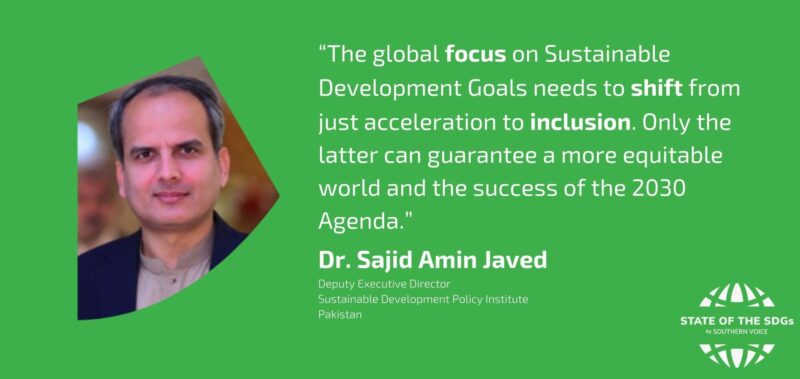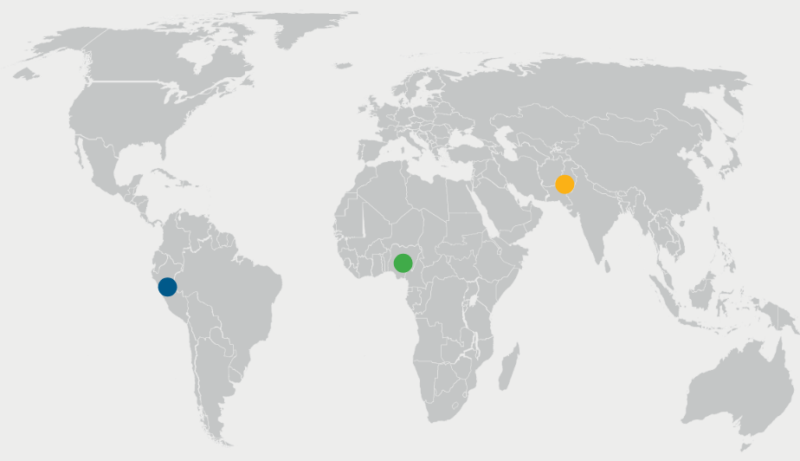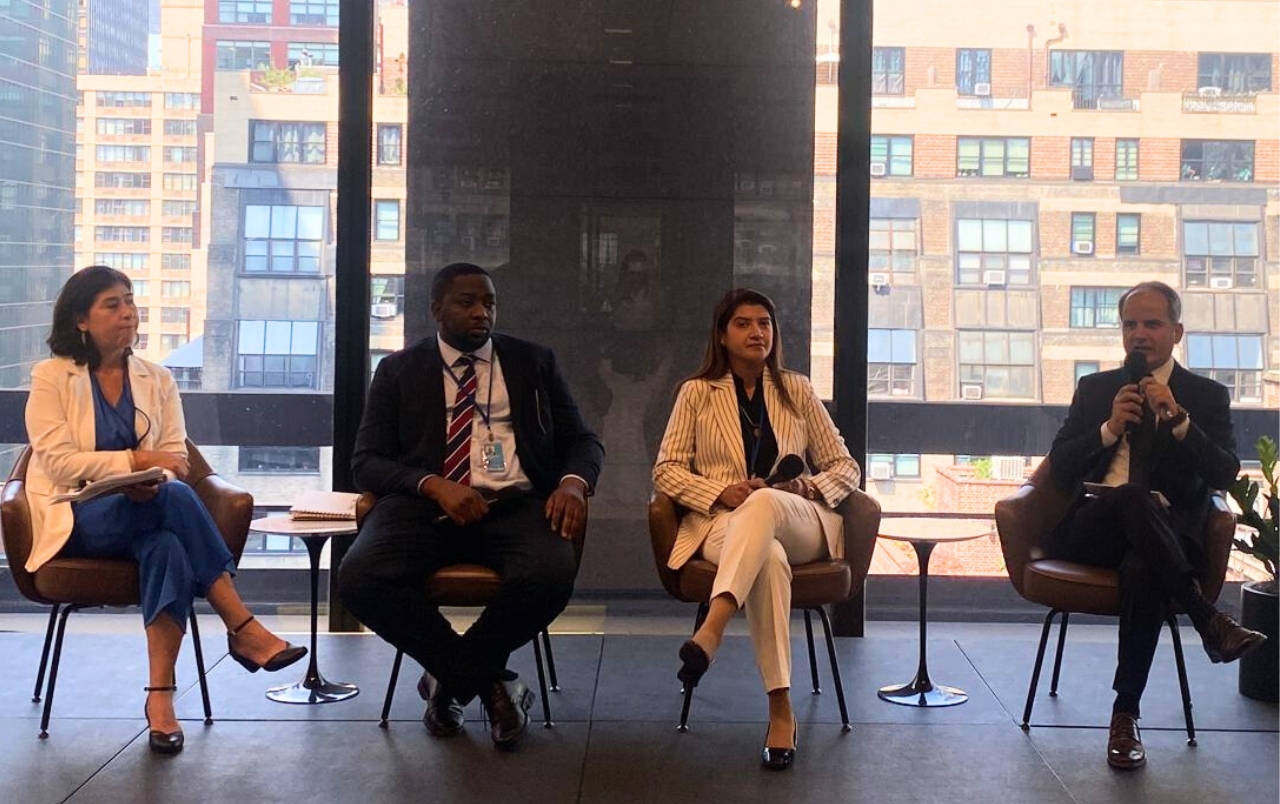Successful implementation of the 2030 Agenda requires that countries move beyond monitoring towards acting in contextualised and integrated policy solutions.…
Southern Voice launched the second edition of its flagship initiative, “State of the SDGs” at this year’s High-Level Policy Forum in New York. This version reflects on how COVID-19-related policies affected migrants, students and small and micro businesses in the Global South.
Researchers from our member think tanks, the Sustainable Development Policy Institute (SDPI – Pakistan), Instituto de Estudios Peruanos (IEP – Peru) and Centre for the Study of the Economies of Africa (CSEA – Nigeria), shared lessons from policy responses to the COVID-19 pandemic across the Global South. They discussed how to balance urgency and inclusion in policymaking to avoid exacerbating existing inequalities or creating new ones.

Dr Tania Vásquez Luque, IEP-Peru, shared that while government social protections have failed to reach some areas, especially peripheral ones, local communities have stepped in and have filled that gap with their own solutions. Dr Chukwuka Onyekwena, CSEA-Nigeria, added that Africa has suffered more from unequal policies to mitigate COVID-19 than from the virus itself.
Dr Fareeha Adil, SDPI-Pakistan, added that policymakers tend to overlook solution-driven approaches in favour of problem-driven approaches. “There is a strong nexus between enterprises and SDGs; they facilitate inclusive growth, address inequalities, and advance women’s economic empowerment. They are the backbone of the economy,” she said.
Sharing results from the latest research on SDGs, guest respondent Astra Bonini from UN DESA’s said: “One key message is that the goals are interlinked but context-specific. It is important to have evidence from different regions and groups in that region because the links are not the same in all places.”
Also Johannes Cullmann, Scientific Advisor to the President of the 77th session of the UN General Assembly, joined as a guest respondent.
“We find it crucial that in undertaking the necessary transformations that the Agenda 2030 demands, we look to lessons from the pandemic, to be better equipped,” said Southern Voice’s Estefania Charvet, Director of Research and Programmes.

You can check the event livetweet thread for additional photos and information here.

Southern Voice and the United Nations Foundation also organized an event on “SDG Progress and Reporting in Times of Polycrisis: the Role of Civil Society in Ensuring Consistency”. It explored citizens’ responsibility in advancing the success of SDGs despite an uncertain global outlook.
In the coming years, progress on SDGs is expected to decline more than 30%, with countries in the Global South being the most affected. It is linked to the effects of climate change, the COVID-19 pandemic, the war in Ukraine and others, which have had a substantial impact on food prices, inflation and poverty levels.
The discussion featured government officials, researchers, and other stakeholders and had a particular focus on Chile, with participation by our member centre Espacio Público. The session highlighted that 2023, a midpoint in the 2030 Agenda, presents an opportunity to reassess and reinvigorate efforts to achieve the SDGs.


